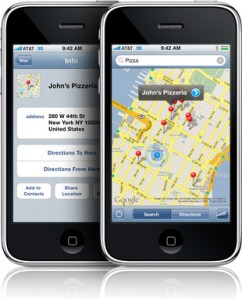Iran stopped shipping oil to the United Kingdom and to France. Global oil prices shot-up and we pay more at the pump. With the threat of oil shipment disruption in the Strait of Hormuz, prices are likely to stay high.
In the USA, over 96 percent of our transportation fuel comes from oil refined into gasoline, diesel, and jet fuel. To protect our security and national leadership, Americans are taking 10 actions that are reducing our need for oil, not increasing the demand.
In the United States, we embarrassingly have more vehicles than people with driver’s licenses. We have 246 million vehicles. AAA estimates that it costs $8,000 per year for each car owned, which creates a financial burden on cash-strapped Americans. The picture is changing for the better.
 1. Fuel Efficiency. Automakers have made an impressive comeback from the Great Recession by building cars that save thousands over their lives with better design, efficient engines, and hybrid drive systems. New cars are averaging 33.8 mpg, up from 24.3 in 1980. Light trucks average 24.5, up from 18.5. DOT Statistics. Automakers are targeting 54.5 mpg for 2025.
1. Fuel Efficiency. Automakers have made an impressive comeback from the Great Recession by building cars that save thousands over their lives with better design, efficient engines, and hybrid drive systems. New cars are averaging 33.8 mpg, up from 24.3 in 1980. Light trucks average 24.5, up from 18.5. DOT Statistics. Automakers are targeting 54.5 mpg for 2025.
2. Electric Cars. In 2011, 18,000 Americans bought electric cars. This year, 60,000 to 100,000 will buy EVs. Instead of using foreign oil, these cars use domestic energy from renewables, natural gas and nuclear power plants. A big surprise is that most of these cars use no coal power. Five to 10 million electric cars will be on U.S. roads before oil flows from new U.S. offshore drilling platforms.
3. Eliminate Subsidies. U.S. taxpayers watch hundreds of billions disappear in subsidies and tax breaks for oil companies. Does Exxon need to keep paying zero income tax while average Americans struggle to pay their mortgages? The Green Scissors report has common sense fixes that would save us $380 billion.
4. Urban Density. For the first time, most Americans live in urban areas where they need fewer cars, have better public transit, use car sharing, and walk more (with added health benefits). Households are going from 3 to 2 cars and from 2 to 1.
5. Public Transit. Americans make about 11 billion trips on U.S. transit in 2008, a 50-year record. Watch out, there is a bill in Congress to cut transportation funding. The result would force us to spend more on fuel, widening highways, and make us more dependent on oil than ever.
6. Employer Commute and Flexwork Programs. Major employers are saving employees billions in travel costs. Employers sponsor ride sharing, last mile shuttles from transit, and guaranteed ride homes. Some employers have web sites and lunch-and-learns to help employees in the same zip codes match-up for car-pooling. 57 million Americans work at home, at least part-time, with the help of flexwork programs. Employer programs have helped with reduced car ownership.
7. Cash for Clunkers removed 700,000 vehicles from the U.S. roads. Our need for foreign oil was reduced as gas guzzlers were replaced with cars needing less gasoline. It’s an election year and people want a tax break. How about a bi-partisan bill which gives people a break when they trade-in a car getting 18 mpg or less for one with double that – 36 mpg or better?
 8. Smart Apps. Internet savvy people now use Google Maps, car share apps, and smart phone apps to compare car directions and time with public transit directions and time. With a few clicks on a social network a shared ride is arranged, or a shared car reserved. In the old millennium we got everywhere by solo driving in gridlock. In the new millennium we plan and use a mix of car driving, transit, and other modes to save time and money.
8. Smart Apps. Internet savvy people now use Google Maps, car share apps, and smart phone apps to compare car directions and time with public transit directions and time. With a few clicks on a social network a shared ride is arranged, or a shared car reserved. In the old millennium we got everywhere by solo driving in gridlock. In the new millennium we plan and use a mix of car driving, transit, and other modes to save time and money.
9. Smart Growth. Community and regional planners are making cities vibrant, with work, services, and play close at hand. Portland, Oregon, is a role model in creating urban density and great public transportation. California with SB375 is requiring regional plans that integrate development, transportation, and greenhouse gas reduction. Video of my workshop at the American Planning Association “More Smiles, Less Miles.” http://www.planning.org/tuesdaysatapa/2010/may.htm
10. States’ Rights. States currently have the right to protect their water, citizens’ health, agricultural land, shores, earthquake and tsunami zones, and wildlife refuges. Congressional Republicans are trying to pass legislation that would require offshore oil drilling from California to Florida and from New York to the Carolinas, whether allowed or prohibited by state law. From Nebraska to Texas, eminent domain would force the XL pipeline over the Ogallala Aquifer that provides water to tens of millions and is critical to our nation’s food supply. We must preserve state’s rights to protect water, health, and a livable future.
Making us more dependent on oil will not make us less dependent. We must end the subsidies and mandates that make us 96 percent dependent on oil and allow our individuals, cities, and states to keep moving us forward with better transit, fuel-efficient cars, and a brighter future.

